Shubham, a graduate in acting from the Film and Television Institute of India (FTII), Pune, has carved a unique niche for himself as a screenwriter par excellence within a very short span of time. He made his screenwriting debut with Eeb Allay Ooo! (2019), a film whose screenplay he has co-written with his longtime friend and batchmate Prateek Vats, also the director of the film. With his later ventures such as Vishanu, from the anthology Unpaused (2020) and War Room from the anthology Unpaused; Naya Safar (2022), Shubham has continued to display his skills of structuring complex narratives content with dramatic economy.
At the 2021 SWA (Screenwriters Association) India awards, Shubham was a multiple winner in the Feature Film category for Eeb Allay Ooo!. While he won for Best Feature Story, Vats and he shared the awards for Best Screenplay, Best Dialogues and Best Debut Writer. This year, he has been selected for the BAFTA Breakthrough India 2022 programme. The programme ‘showcases and supports the next generation of creative talent working in Indian film, games and television while identifying excellent individuals who have had a breakthrough year in the industry’.
I recently caught up with Shubham to talk about his journey as a screenwriter.
You are a trained actor from FTII, Pune. How did you enter into the world of writing screenplays instead?
Actually, writing has always been an integral part of my work as an actor. Adapting plays and writing background material for different characters were a regular practice in my theatre group during my graduation years. Gradually, I gravitated towards writing short stories more as a hobby rather than anything else. FTII gave me the space to hone my writing skills by collaborating on screenplays, dialogues and lyrics for various students projects.
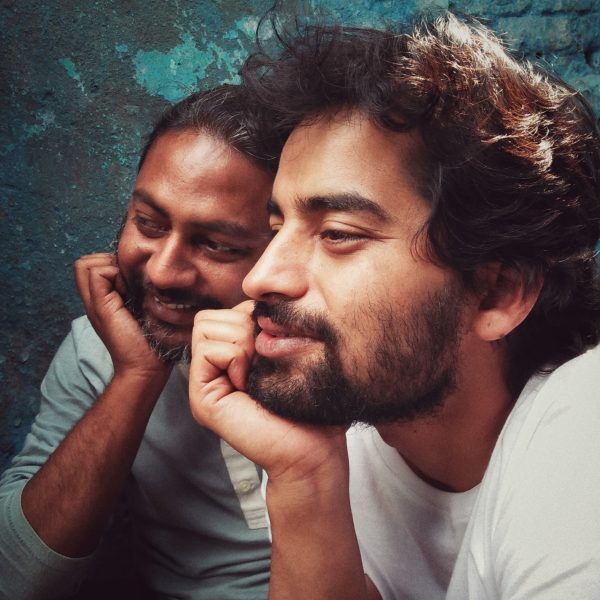
You began your professional writing career post FTII with Eeb Allay Ooo!. What were the challenges you faced writing your first feature script?
Prateek Vats, the director of Eeb Allay Ooo! and my co-writer on the film, was clear from the beginning that we would be experimenting with the form of the film. This meant the screenplay had to go through a process of writing which pushed the possibilities of cinematic language further than usual. We both knew that it would be difficult to write a film like this because of two major reasons. First, we would be shooting with untrained monkeys in their natural habitat. We were certain we didn’t want to shoot them like a documentary. The monkeys needed to have a character of their own. Second, we would be shooting in real locations with real people in the background and that too in Lutyen’s Delhi, which is highly guarded and practically impossible to control. This meant that we had to write a script that allowed for ample improvisation within the philosophical framework of the story. So, how do you write such a script? I guess you don’t just ‘write’ it but more importantly, you also respond constantly to your immediate surroundings. We knew accidents were bound to happen, pleasant and unpleasant. Therefore, we decided to approach the scenes through different psychological spaces so as to have a semblance of control over these uncontrollable variables. The real challenge was to retain the organic quality of the film without getting lost in the stark realism of its setting.
Was it difficult to work with a co-writer?
See, I have known Prateek now for more than a decade. From being in the same theatre group in Delhi to being batchmates in FTII, we have closely observed, critiqued and contributed to each other’s work over the years. It is impossible to quantify the number of hours we have spent discussing each other’s work, films, theatre, dance, music and politics. I feel Eeb Allay Ooo! is just another chapter in our long working/professional partnership. What I like about Prateek is that he is constantly evolving. So in working with him, there is always a space for new ideas and newer ways to tell a story, which I really enjoy. I would say it’s good for both of us. My involvement with Eeb Allay Ooo! went beyond the writing as I also am the associate director of the film.
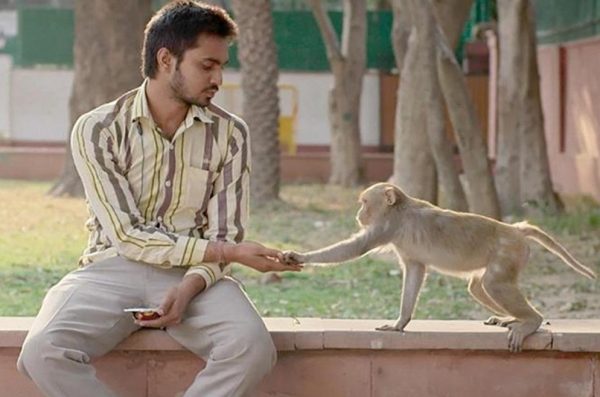
A young migrant contracted to drive monkeys away in Lutyen’s Delhi (Eeb Allay Ooo!), a daily wage worker trapped inside a posh apartment along with his family during the lockdown (Vishanu from the anthology Unpaused), a Covid War Room worker confronting a moral quandary when a call for help scrapes her wounds (War Room from the anthology Unpaused; Naya Safar) – These are all very distinct, real people that we see. How do you zero in on the subject for your films and create these unique characters?
The subjects of all the films I have written have been a result of my discussions with the directors. And I have been fortunate that the directors I have written for wanted to reflect the society we are living in through their films. I feel our stories and characters are eventually a logical conclusion of our preoccupations with life. For example, the intricacies of the system of contractual labour had always bothered me and Prateek. It continues to do so. The more we tried to understand it, the more evil it appeared to us. It robs a society of a future by stripping away dignity from labour. The disgusting act of covering and hiding working class neighbourhoods and slums in Delhi by the Government during the Commonwealth Games in 2010 still leaves me with an uneasy feeling. To me, it showed the moral bankruptcy of the Government. It wanted the fancy stadiums, flyovers, wide roads and swanky offices but not the people whose blood, sweat and toil went in building them. Both Eeb Allay Ooo! and Vishanu are a result of the unease I feel, although the trigger points for both are very different.
I feel it all depends on the subject and the time in which the story is being told. Vishanu was an immediate reaction to the sudden lockdown leading to the mass exodus of migrant workers back to their hometowns and villages during the first wave of the pandemic. For me, it became a frame to reflect on class divisions in our society, which were laid bare by heart-breaking images of men, women and children walking thousands of miles under the scorching sun at one end while the privileged middle-class happily dabbled in their cooking skills, virtual workout routines and attending zoom parties. So automatically, I started writing through the imagery this contrast brought about. The image of a working class woman trying to get in to a lavish bathtub is enough for one to understand the difference in these two lives.
Talking about the characters, the subject of the story itself leads to them. The idea is to create irony through characters. Characters, who are here all around us. They are as real as you and me with their own set of insecurities and strengths. They are part of a system and are, ironically, always fighting it to survive. The idea is also to understand and show a system/structure where we all are participants. We have to realise that current systems has faults. If I don’t have a solution, the least I can do is to raise pertinent questions.
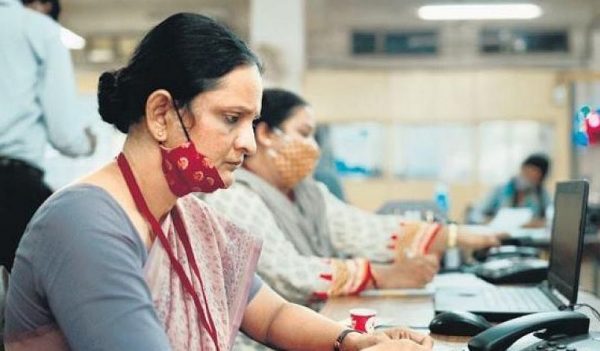
In War Room, what sort of research did you do?
The seed idea of the story came from Rohith Vemula’s tragic death and the insensitive handling of the case by the State Authorities. So I revisited all the articles and writings about the case that I could find. I also followed the court proceedings of the case. The next step was to talk in detail to teachers and doctors working in the Covid War Room in Maharashtra during the second wave of the Pandemic. This helped greatly to understand the functioning and hierarchy of that space.
War Room is a story about a Dalit woman dealing with her son’s death. Caste oppression is one topic most people around us want to avoid talking about as it makes them uncomfortable. This is not accidental. People just don’t want to disturb this social hierarchy, which has been passed down through generations. This institutionalised discrimination and oppression is what killed Rohith Vemula. It is only one such example among countless others. War Room deals with complex human emotions of a mother as she battles her own humanity in the face of a devastating pandemic, which spares no one. In fact, I wanted to be far more ‘on your face’ in my treatment but unfortunately, times are such that I had to hold back.
The pen gets referred to in a number of scenes in War Room. Any particular reason for this?
A pen is a crucial instrument of any government office. We realise its importance only in its absence. But I didn’t want to use the pen just as a functional prop in the script. The idea was to create its own journey and make it share a symbolic relationship with our main character, Sangeeta. Throughout our history, the pen has been weaponised by the Brahminical system for the oppression of the unprivileged. Sangeeta’s son committed suicide while fighting for his right to education. She has to continue her son’s journey for justice and not revenge by ‘reclaiming’ this historically denied pen.
Which of your projects has satisfied you the most as a writer? Any particular scenes or sequences you’d like to highlight?
Eeb Allay Ooo! without any doubt. It’s also special to me as it is my first feature film as a writer and associate director. It’s hard to explain the joy and hard work that went into the making the film. Starting right from writing it to representing the film at National and International platforms.
In particular, I would like to talk about one scene in Eeb Allay Ooo!. The scene is an introduction for Kumud’s character and seeds the romance between her and Anjani in the film. The entire scene is written through elements – light, sound, mood, choice of props etc and is deliberately kept ambiguous where none of the dialogues are complete. The characters whisper to each other in the dim light of their phones while looking for a hair clip – a simple prop – which to me, has connotations about beauty and romance. Dialogues become sound as the characters engage in awkward flirtation through a conversation which remains incomplete. Just as the conversation starts to make sense, Anjani finds the clip. We don’t know whether he was hiding it or was it a coincidence. I really enjoyed writing this scene.
The other scene from the film which I really like and I feel I learnt so much from, is written by Prateek. This is where Anjani is berated by his sister for his body odour after a long and hard day at work while his brother-in-law has an argument with him regarding his job. To me, that one scene establishes the entire relationship dynamics between all three characters. You can sense the hierarchy in the house, you feel the effect of Anajni’s job and you get a sense of the contractual labour system they are all a part of. It could easily have been three scenes but everything happens so organically in just one beautifully written scene.
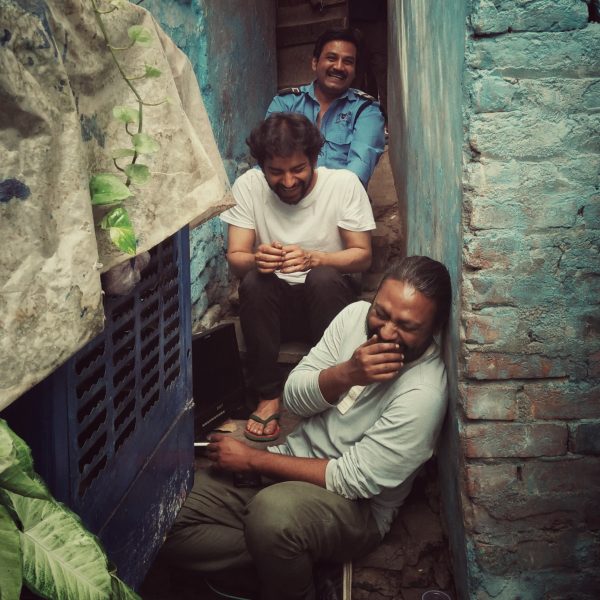
How do you feel as a writer that your material will be finally interpreted and executed by someone else? Are there any films where you felt something was perhaps lost in translation in the execution from paper to screen?
It’s naive for a writer to think that nothing will change in the script while filming. We have to understand that our scripts are being interpreted by thinking individuals with their own worldview and understanding of the cinematic craft. In this process, things are bound to change. I don’t see this as necessarily a loss. Sometimes, valuable additions are made while filming. And anyway, this is not something which is in my control as a writer. So there is no point bothering about it too much as long as the fundamental core of this script is intact.
You now have the experience of writing short and as well as full-length feature films. Which of the two mediums do you prefer?
For me the process of writing itself is enjoyable, the format or medium is incidental. Right now, I am working on a feature film, which will hopefully begin filming this year.
You are one of the ten selected for the BAFTA Breakthrough India 2022 programme. What are your expectations?
It’s far too early to say anything concrete as of now but I am hoping to collaborate with other National and International artists from various fields. It can only help to widen my horizons.
Lastly, where does acting fit into your scheme of things ? Do you not miss it?
I am formally trained in screen acting and have always loved performing. But unfortunately, due to a medical condition I had to take a break. Thankfully, my treatment is going well and hopefully, I will soon get back to acting.


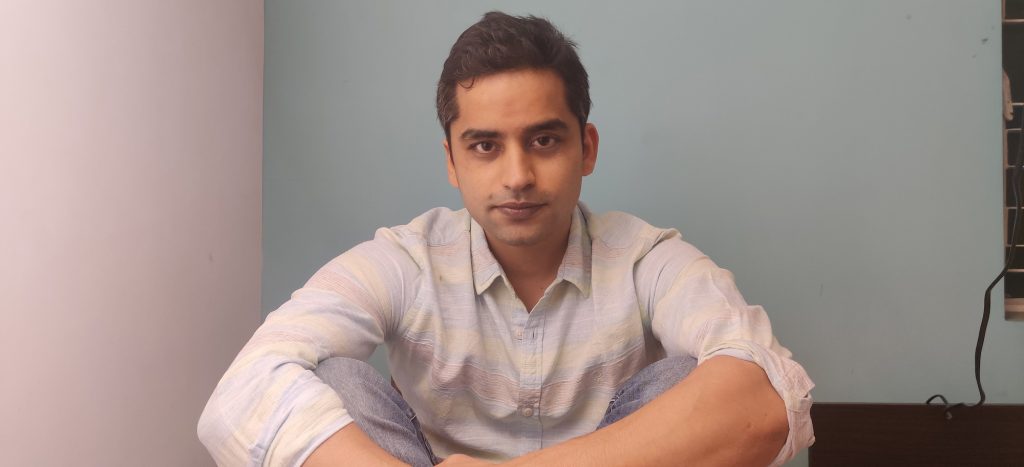
Highly informative and insightful interview of a creative young artist! Thanks.